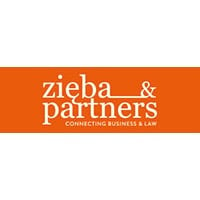

Head of legal department | Nest Bank




Marcin Szlaszyński
Head of legal department | Nest Bank
During the last two years in Nest Bank, we’ve faced a lot of legal or regulatory requirements to be met, not to mention GDPR regulation and directives: PAD, PSD2, IDD, etc. So despite building a competitive and innovative bank we’ve also needed to focus on ensuring that all regulations will be implemented in proper way.
Given at the end of 2017 Nest Bank becomes a Nest Bank Group with one subsidiary, I’ve been involved in building an effective corporate governance control and supervision processes in Nest Bank Group, required by the banking law. In order to ensure both the bank and its subsidiary have optimal conditions for growth I participated in several projects ensuring a capital injection to the companies.
I’ve been participating in several proceedings initiated by the Office for Competition and Consumer Protection, Polish Financial Supervisory Authority. I’ve been also involved in procedures aimed at protecting the Bank’s trademarks and intellectual property rights.
I write more about this below. Obviously, soft skills and personal attributes of the in-house lawyer are very important for the success of the company. The in-house lawyer must be able to effectively communicate with its every part, no matter if they are a product manager or internal auditor, member of the management board or IT specialist. Although the company is one entity, it is created by many different people with different roles, ideas, etc. As we know, communication between people is usually based on emotions, often refers to divergent interests, so the in-house lawyer needs to recognise them, react to them in a smart way, being not only a good lawyer, but sometimes negotiator, mediator and even psychologist.
I would advise them that the Polish market nowadays is a well-developed European market with European standards in almost every area, with very well qualified and ambitious lawyers, and a pretty predictable law. Therefore, although there are still some areas that could be improved, my peers or colleagues should not be aware of the Polish market at all.
They should understand the needs and concerns of my company as well as generally the banking sector. They should not limit their support to present just theoretical interpretations of law, but rather provide a client with tailor made, practical advice aimed at resolving an issue in a comprehensive way.
I wish to present my vision of a good in-house lawyer and to answer the question: “Is a profound knowledge of law enough to be a good in-house lawyer?” In my opinion it is surely not. There are a lot of more features a good in-house lawyer should be perceived as a firm point of the company and its team.
First of all, a good in-house lawyer must not only perfectly know the legal and regulatory environment related to the operation of the entity being served, but also understand its short and long-term business goals, as well as the processes functioning in it.
A good in-house lawyer really needs to feel he/she is a part of the company, although at the same time perfectly understand its specific role in it. He must actively perceive business needs, understand his language and communicate in a comprehensible way for business. Its “strength” should certainly not be on the one hand unjustified fidelity to business expectations or on the other hand extreme caution manifested in the identification of only risks and the lack of constructive conclusions.
A good in-house lawyer should build an authority based on profound knowledge and experience among all internal clients within the entity that he/she supports, both sales and audit units, and in particular its bodies. The authority based on knowledge and experience is manifested in particularly clear, constructive and substantive legal opinions, not only noticing the risks and problems while indicating their potential practical consequences, but also opportunities hidden in alternative solutions, safer from legal perspective, that business may not be aware.
A good in-house lawyer must also inspire the business to go beyond the usual, well-known, but risky market solutions and search for new, better, innovative, alternative solutions that respond to business needs.
A good in-house lawyer must be discreet and trustworthy in relation with everyone in the company, knowing that even if this is one team, there could be (and usually are) some conflicts or conflicting interests. The in-house lawyer should be beyond this, should act ethically, respecting high standards of building relations and communication with other employees.
In addition, a good in-house lawyer knows very well that cooperation with external law firms is often justified and sometimes even necessary from the perspective of the interests of the entity being served. Such lawyer should have the ability to assess when and in what cases such support is recommended or required.
A good in-house lawyer gives a sense of confidence and trust to the bodies of the entity that he serves ensuring clear and precise communication about the existing legal risks.
Finally, an in-house lawyer should understand recent changes in the legal world, their dynamics and
try to predict trends. Undoubtedly the system of law is changing. Now even faster than ever before. The way of construing the law, interpreting it varies from what we learn from our studies one or two decades ago. The services and generally turnover is more and more specialised, technically advanced. So becomes the law, its regulations. The in-house lawyer is the one who should be aware of such processes, observe them and react in order to secure the company’s interests or possibly give the company new opportunities.